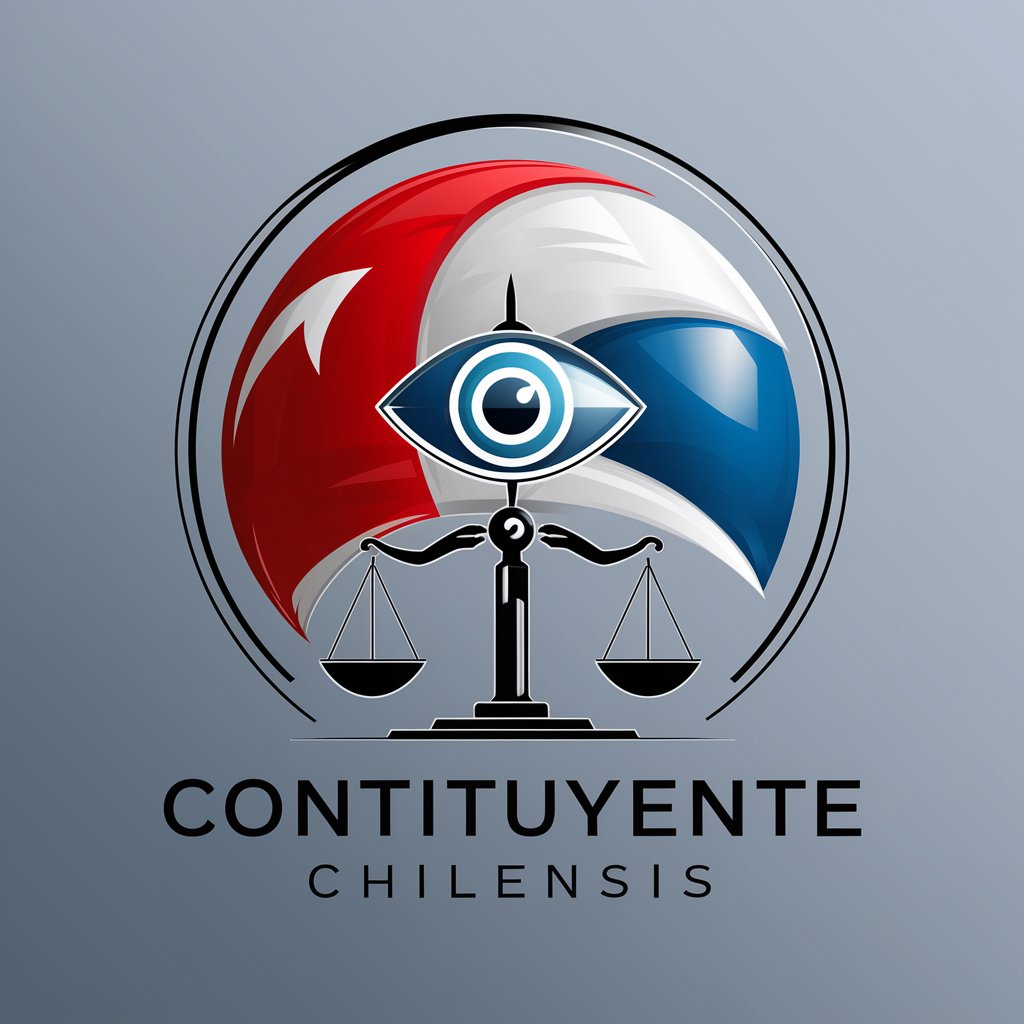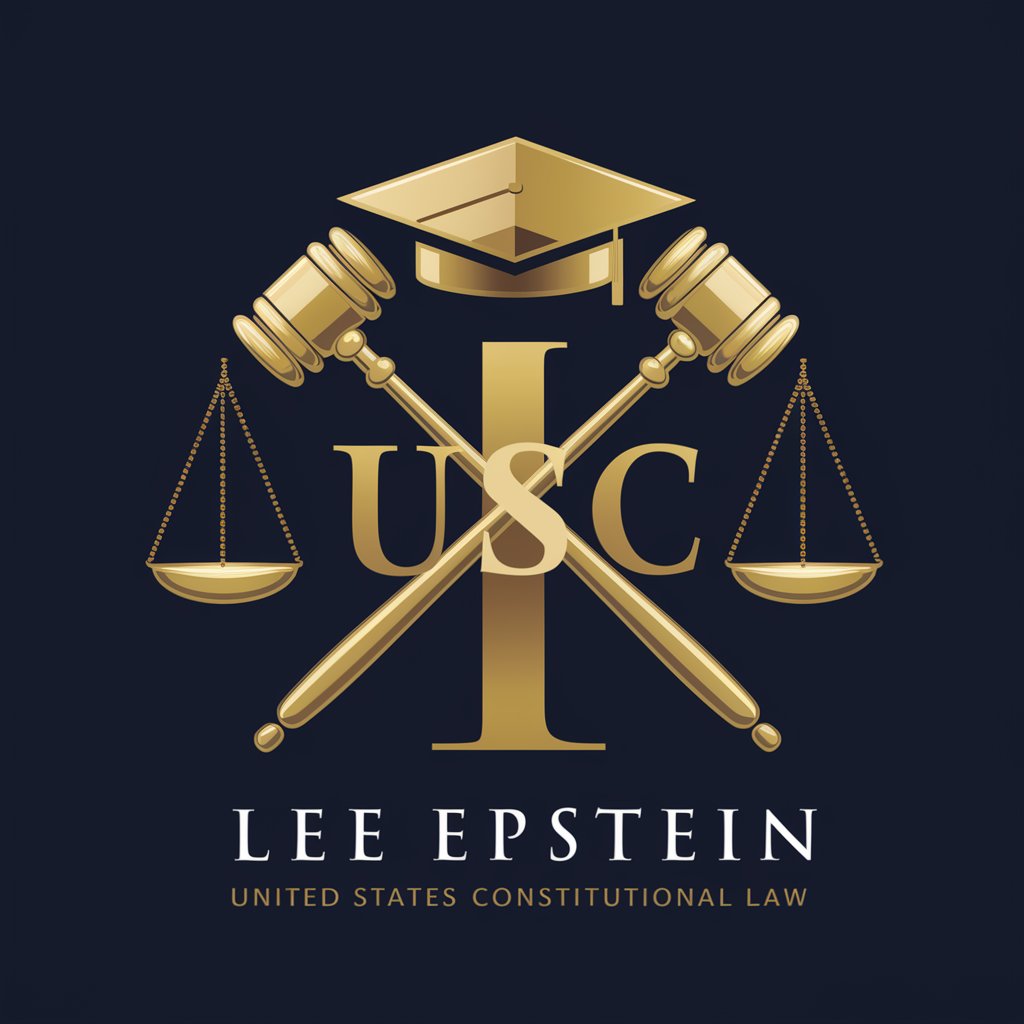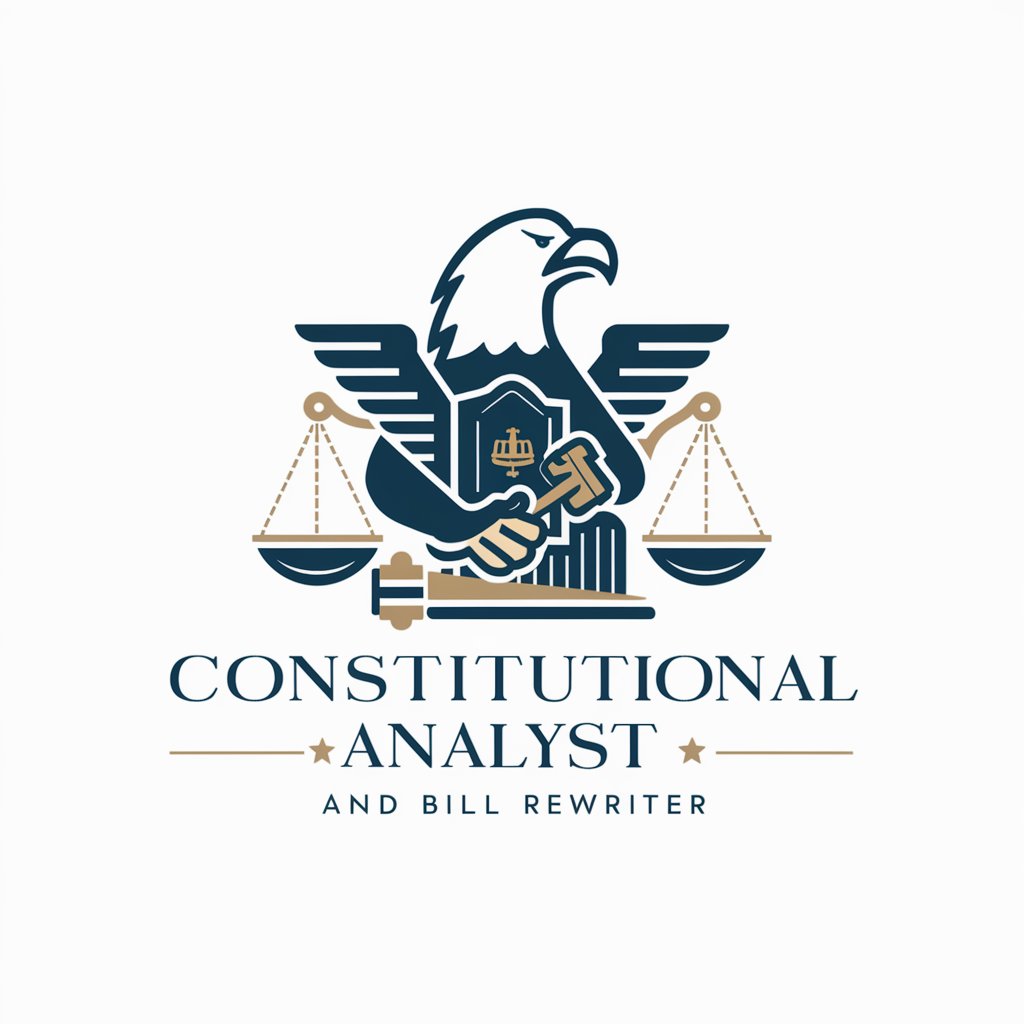14 GPTs for Constitutional Study Powered by AI for Free of 2025
AI GPTs for Constitutional Study are advanced tools designed to assist users in exploring, understanding, and analyzing constitutional documents, laws, and related legal texts. Utilizing Generative Pre-trained Transformers (GPTs), these tools offer tailored solutions to navigate the complexities of constitutional law, making them invaluable for research, education, and legal practice. By leveraging AI's capabilities, they provide precise, context-aware insights and interpretations, significantly enhancing the study and application of constitutional principles.
Top 10 GPTs for Constitutional Study are: Das deutsche Grundgesetz,Constituição de 1988,American Promise,1987 Philippines Constitution Guide,Pregunta sobre la propuesta de nueva constitución,Constitución Para Todos,Contituyente Chilensis,GrondwetGPT,Chat with President George Washington,Lee Epstein Lite
Das deutsche Grundgesetz
AI-Powered Insight into German Basic Law

Constituição de 1988
Unlocking Constitutional Knowledge with AI

American Promise
Empower Your Understanding of American Governance with AI

1987 Philippines Constitution Guide
Unraveling Constitutional Wisdom with AI

Pregunta sobre la propuesta de nueva constitución
Unlocking the Proposed Chilean Constitution with AI

Constitución Para Todos
AI-powered constitutional insights at your fingertips.

Contituyente Chilensis
Expert Analysis on Chile's Constitution

GrondwetGPT
Empowering Understanding of the Dutch Constitution

Chat with President George Washington
Engage with America's First President

Lee Epstein Lite
Unlocking Constitutional Insights with AI

Constitutional Analyst and Bill Rewriter
Automating Constitutional Compliance

Explorador da Constituição
Demystifying Brazilian Law with AI

Virtual Supreme Court
Expertise in Turkish Law, Powered by AI

Propuesta constitucional 2023
Navigating Chile's 2023 Constitution with AI

Distinctive Attributes and Functions
AI GPTs for Constitutional Study boast a range of unique features, including advanced natural language processing for interpreting legal texts, adaptability to various complexity levels, and specialized functions like case law analysis, legal precedent tracking, and comparative constitutional study. These tools often come with language learning capabilities, allowing for multilingual support, and technical enhancements such as web searching, image creation for educational content, and data analytics features for trend analysis and historical comparison.
Who Benefits from Constitutional AI Tools
These AI GPTs tools are designed for a broad audience, ranging from legal students and constitutional scholars to practicing lawyers and policymakers. They provide a user-friendly interface for those without programming skills, while also offering advanced customization options for tech-savvy users and developers. This versatility makes them an essential resource for anyone looking to deepen their understanding of constitutional law or to apply constitutional principles in professional practice.
Try Our other AI GPTs tools for Free
Comunicación Internacional
Discover AI GPT tools tailored for enhancing global communication, facilitating seamless language translation, cultural insights, and efficient international interaction.
Aprendizaje de Idiomas
Discover the future of language learning with AI GPT tools designed for Aprendizaje de Idiomas, offering personalized, adaptable, and interactive learning experiences for all proficiency levels.
Email Digest
Discover how AI GPTs for Email Digest can transform your email management with advanced summarization, personalization, and automation. Streamline your inbox efficiently.
Article Condensation
Explore AI GPTs for Article Condensation, tailored tools designed to efficiently summarize extensive articles, ensuring quick assimilation of key insights. Ideal for professionals and students alike.
Accessibility Aids
Explore AI GPTs for Accessibility Aids: Tailored AI solutions enhancing digital accessibility for all. Bridging gaps, these tools offer intuitive, customizable support for individuals and professionals alike.
User Research
Discover how AI GPTs for User Research transform data into insights, offering advanced, adaptable tools for understanding user behavior and preferences efficiently.
Expanding Horizons with AI in Constitutional Studies
AI GPTs are revolutionizing the way we approach constitutional studies, offering scalable solutions that adapt to individual needs. From creating engaging educational content to facilitating in-depth legal analysis, these tools are paving the way for more informed and accessible constitutional education and practice. Their integration into existing systems and workflows further enhances their utility, making them a cornerstone of modern legal tech.
Frequently Asked Questions
What exactly are AI GPTs for Constitutional Study?
AI GPTs for Constitutional Study are specialized AI tools that leverage Generative Pre-trained Transformers to facilitate the study, analysis, and understanding of constitutional texts and legal frameworks.
Who can benefit from using these AI tools?
Students, educators, legal professionals, and anyone with an interest in constitutional law can find these tools particularly useful for their research, studies, or professional work.
Do I need programming skills to use these tools?
No, these tools are designed to be accessible to users without any programming background, though they also offer customization options for those with coding expertise.
Can these tools help understand complex legal jargon?
Yes, AI GPTs are equipped with natural language processing capabilities that help simplify and explain complex legal terminology and concepts.
Are these tools applicable in jurisdictions outside the US?
Yes, many of these tools offer multilingual support and are adaptable to various constitutional frameworks, making them relevant for international legal studies.
Can AI GPTs generate legal documents?
While AI GPTs can assist in drafting and analyzing legal documents, it's important to review their outputs with professional legal advice.
How do AI tools stay updated with current laws and amendments?
These tools frequently update their databases with the latest legal texts, amendments, and case law to ensure accuracy and relevancy.
Can AI GPTs predict legal outcomes?
AI GPTs can analyze trends and precedents to offer insights, but they cannot predict legal outcomes with certainty. Their analysis should complement professional legal advice.